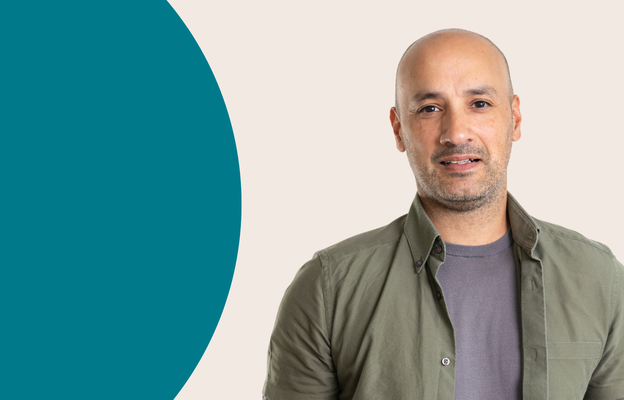
An edited version of this piece was first published in Third Sector, Opinions, on 10 March 2025.
Spent much time talking about Donald Trump & Elon Musk recently? Me too, and it feels wrong. After all, it’s not our country. They aren’t taking an axe to government programmes that affect Londoners. The laws they’re changing won’t impact us directly.
But the backlash against ‘woke’ in the US isn’t just a distant spectacle - it’s a warning. Cultural and political trends travel. The weakening of progressive movements there should make us reflect on the challenges we face here. Why aren’t we making progress on the issues we care about?
There are very real structural barriers to social justice causes right now. Many of these, notably the economy, are simply beyond our control. But civil society plays an important role in shaping how country works. As a funder, I want to understand if philanthropy is getting it wrong.
The US: Have Progressive Funders Failed?
Across the pond, the role of philanthropy in progressive failures is under scrutiny. In a brilliant article, Nina Lao, a former staffer for Alexandria Ocasio-Cortez, lays out the problem.
Conservative funders in the US have played the long game. They’ve invested in grassroots movements, media, academia, and think tanks. They’ve been coordinated, persistent, and effective.
Lao argues that progressive funders have undermined movements by prioritising short-term, fragmented projects over strategic, long-term support. She also warns that a fixation on identity politics has pushed the left further from working-class communities. Instead, she calls for sustained investment in economic justice and grassroots organising—initiatives that actually build power.
Meanwhile, conservative funders in the US have played the long game. They’ve invested in grassroots movements, media, academia, and think tanks. They’ve been coordinated, persistent, and effective.
Lao makes a compelling argument, and while her focus is across the Atlantic, and I feel I need a more in-depth understanding of conservative philanthropy, enough of it resonates here. Funders are a crucial part of the picture, and we need to ask: are we funding communities in a way that builds lasting power?
Funders oversimplify communities - and it’s holding us back
I began my career as a community worker in the South Wales Valleys. It was an education. I saw how deeply the coal mines had imprinted a sense of solidarity, with incredible local leaders pushing for economic change. But I also saw how communities could include and exclude in equal measure, and how the solidarity of the past wasn’t so easy to recreate.
It was also my introduction to the broader field of community development. Twenty years ago, the UK had a much stronger landscape of practitioners, institutions, and academics who understood the complexities of communities—and how to navigate them.
Since moving to the funding side, I’ve been struck by how simplistically we talk about communities. Everything is so positive, rosy. The word ‘community’ is a synonym for ‘good’ and it makes us feel better. But communities are complex, messy, good and bad.
The problem with philanthropy’s overly romanticised view of communities is, I think, that it lead us to fund the symptoms rather than the causes of poverty.
Like the communities in the Rhondda, the Indian working-class community I grew up in was generous and full of solidarity. But it could also be judgmental and intolerant of difference. It frustrates me when minority communities today are presented as homogenous and left-wing. It’s not true, and pretending otherwise only deepens the disconnect.
The problem with philanthropy’s overly romanticised view of communities is, I think, that it lead us to fund the symptoms rather than the causes of poverty. It’s easier to fund a community organisation to run a project that provides immediate relief of poverty, rather than engage with the messy, long-term, uncertain nature of building power in communities. This is because we know the community project will help people now. It’s also easier to fund a community project than a think-tank or academic to do research, or to fund a multi-disciplinary network that brings people together. No funder ever felt guilty turning down a proposal from a Westminster based think-tank.
But, if we are to take the lessons from the US that Lao outlines in her article, for us funders that have the independence and resources to really push for social justice, these may be the wrong choices.
Why we need to fund community organising
As community development has declined, a different approach has taken root—community organising. If community development is about building groups and associations in communities, community organising is about helping those groups work together to build power.
Organising doesn’t ignore the messiness of communities, it embraces it. It works with different and sometimes conflicting interests, finding common ground in shared self-interest. It nurtures local leadership and mobilises people at scale. I’ll never forget the first Citizens UK assembly I attended—thousands of people in one place, dwarfing the largest community meeting I’d ever been to.
And crucially, this kind of organising bridges divides. People of different religions, ethnicities, classes, cultures and identities—all coming together, not because they agreed on everything, but because they were getting behind shared goals to improve their communities.
Organising doesn’t ignore the messiness of communities, it embraces it.
We know first-hand how effective organising can be through our support of the Living Wage Campaign. In 2021, we made a £4.8m grant to Citizens UK and the Living Wage Foundation to campaign to make London a Living Wage city. The result has been phenomenal, with hundreds of millions of extra wages in the pockets of low-income Londoners.
But the Civic Power Fund’s third Funding Justice report highlights how little philanthropic money in the UK goes toward community organising. That needs to change if our causes are going to get back on track.
Communities can’t win alone - they need help
But organising alone isn’t enough. If communities are going to turn their demands into real wins, they need access to power—connections with policymakers, legal experts, and institutions that can help turn grassroots energy into change.
This is something conservative funders in the US and UK have understood for years. They fund research, media, and legal advocacy, creating a pipeline from ideas to policy. If we want progressive change, we need the same approach. The key difference? This work must be connected to communities, working with them, not speaking for them.
A good example of this is the Changing Realities project, a collaboration between low-income parents, the University of York, and the Child Poverty Action Group. It combines lived experience with academic credibility and policy expertise, elevating the voices of struggling families while making their case to those in power. See how Gemma from the project got an article published about her experiences in the Guardian.
The Language Problem
Beyond what we fund, how we talk about social justice matters. Frankly, the language is part of the disconnect from working class communities. The strategic communications field has made real progress in helping us figure out how to communicate better with different audiences, but the sector all too often slips in our own jargon.
The reality is, almost no one in working-class communities talks like the sector does. Even the term ‘progressive’ itself isn’t widely used.
A recent report by More in Common highlights this with the example of ‘white privilege.’ Using the phrase gained much less support then talking plainly about tackling racial discrimination.
The reality is, almost no one in working-class communities talks like the sector does.
Compare that to the right’s messaging, which is often much more simplistic. Their attacks on ‘virtue signalling’ and claims to speak common sense cut through to an audience that doesn’t think about this stuff very much.
As funders, we contribute to this problem. We once received a funding application from a really great grassroots group, but it was full of progressive jargon. When my colleague asked why, they admitted they didn’t actually talk that way but felt it was what we wanted to hear. My heart sank.
Funders and their power – the elephant in the room?
What about the power of funders? Should it be transferred to communities as part of this? It’s probably been the central question dominating most funders in the social justice space. We talk about it a lot and there are different approaches emerging.
Some funders with expendable endowments (which means aren’t legally obliged to keep it) will give all their money away, so that community organisations have the financial security they need for long-term work. Others are diversifying their staff and trustees, so that they have a deeper understanding of the communities they work with, and a range of lived and learnt experiences that isn’t just about the mechanics of giving out money.
There is also more interest in participatory approaches to funding – something we are testing with our disability justice fund, supported by the City Bridge Foundation.
What about Trust for London? Well, our endowment is permanent by design, so we can’t give it all away. Our approach over a number of decades has been to try and ensure our staff and trustees reflect the broad diversity of London – and try to be a long-term partner that helps communities build the power they need to create change.
Learning the lessons and moving forward
Social justice isn’t stuck. The reality of social change is that it ebbs and flows in different directions. We are entering a new phase, one where coalition-building and collective action take centre stage, not as a rejection of identity politics, but as a way to build broader, more sustainable movements.
I’ve highlighted what I think funders need to do more of: embrace the complexities of communities, fund long-term organising, fund the insiders and keep them rooted, stick to plain English and use our own power carefully.
Is Trust for London on the right track? I hope so, but we’ll still be asking ourselves the question and no doubt we have more to do. Over the coming months, we’ll be looking at how we can push ourselves further.


